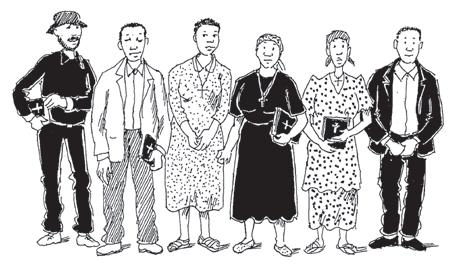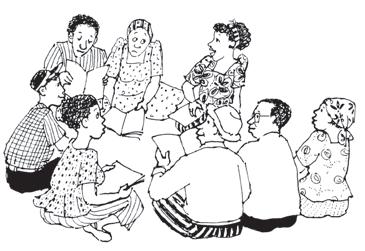Guidance For Facilitators These studies are designed for group discussion and learning. They do not require a ‘teacher’ but rather a facilitator.
The role of the facilitator The facilitator has an important role to play in ensuring that all those present have the opportunity to participate. A good facilitator can help to create a relaxed and open atmosphere where people feel safe and can share their personal thoughts and experiences. The facilitator should seek to build up relationships within the study group. This helps people to raise and discuss sensitive or difficult issues. Although the facilitator is likely to be in some kind of leadership role within the church, the pastor or minister may not be the best person to facilitate these studies; people might expect them to ‘teach’ and provide the ‘right’ answers. The facilitator needs to be comfortable with discussing openly issues that people often shy away from; sex, for example, is not often discussed openly in a group. The facilitator may require additional support throughout this process, if they are providing support to participants who have experienced sexual violence personally. Please see our section on practical guidelines (pages 43–49) for more information on this.
BEFORE – DURING – AFTER There is no one way to facilitate a group discussion; different groups have different needs, and facilitators have different styles. But there are some common key guidelines for good facilitation.
BEFORE YOU START COMPLETE THE SELF-DISCOVERY TOOL (page 52) – This will help you identify the areas of which people may have limited knowledge or understanding. If you score low in a particular area, you can then start with the relevant Bible study linked to it. PERSONAL PREPARATION – It is important for the facilitators to spend time preparing for the group discussions. Take the time to read and reflect on the Bible passage and the facilitator’s notes. We have provided some background information for each study as well as some guidance on how to facilitate the discussions and what questions to ask. You may want to bring your own ideas and illustrations too. BIBLE READINGS – The full Bible readings for each study are available at the back of this book (pages 37– 43) and are taken from the New International Version. You can photocopy them to use in your groups. It can be useful to bring different Bible translations to compare. Encourage people to bring their own Bibles.
Facilitation is about… ENSURING
everyone has a voice everyone is valued for their contribution
ENABLING
each person to discover their potential everyone to work together to tackle common problems
HAND IN HAND: BIBLE STUDIES TO TRANSFORM OUR RESPONSE TO SEXUAL VIOLENCE
7






